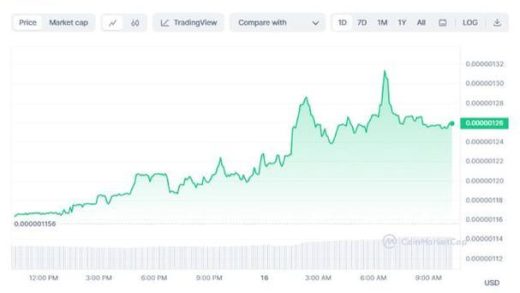in the ever-evolving world of digital currency,algorithmic predictions are becoming increasingly popular. As crypto enthusiasts adn investors seek to navigate this volatile market, they often turn to advanced algorithms that promise to predict price movements and market trends. This raises a critical question: Can algo crypto predictions really foresee the future of digital currency?
Understanding Algorithmic Predictions in Crypto
Algorithmic trading and predictions utilize complex mathematical models and high-frequency data analysis to forecast price trends in cryptocurrencies. Instead of relying on gut feelings or political events,these algorithms analyze vast amounts of data,including past price movements,trading volumes,and market sentiments.
Some critical components of algorithmic predictions include:
- Data Analysis: Algorithms analyze historical price data to identify patterns.
- Market Sentiment: They scan social media, news articles, and forums to gauge public sentiment.
- price Volatility: Algorithms assess volatility levels to determine potential price swings.
The aim is to enhance the accuracy of predictions and provide actionable insights that can guide investment decisions. However, whether these predictions can accurately forecast the future of digital currencies remains a topic of debate.
The Reliability of Algorithmic Predictions
While algorithmic predictions can provide forecasts based on large datasets, their reliability can vary considerably. Investors must consider several factors when evaluating the accuracy of algorithm-driven predictions.
- Historical Data Limitations: Algorithms rely on past data, and while history can provide insight, it does not guarantee future performance. The cryptocurrency market is known for its unpredictability,and unexpected news or events can drastically alter market conditions.
- Market Manipulation: The crypto space is still relatively young and can be susceptible to manipulation. Important players can influence market trends, rendering algorithmic models less reliable during such fluctuations.
- Technological Components: Innovations in blockchain technology are constant, making it challenging for algorithms to keep up. New regulations, technological improvements, and shifts in consumer behavior can render existing models obsolete.
The above points highlight that while algo predictions can provide hypotheses about market movements, they are not foolproof and should be used in conjunction with other forms of analysis.
Advantages and Limitations of Using Algorithms in Crypto
Algorithmic trading provides both advantages and limitations for investors in the digital currency space. Understanding these can help investors make informed decisions.
Advantages:
- Speed and Efficiency: Algorithms can process vast amounts of data in real-time, allowing for rapid decision-making that humans cannot achieve.
- Emotion-Free Trading: By relying on data-driven insights, algorithms eliminate the emotional aspects of trading, which can lead to more rational financial decisions.
- Backtesting: Traders can backtest their algorithms with historical data to see how they would have performed, perhaps increasing confidence in their trading strategies.
Limitations:
- Overfitting Risks: Some algorithms may be too finely tuned to historical data, resulting in poor predictive performance during real market conditions.
- Lack of Contextual Awareness: algorithms may not be designed to consider external factors like regulations, emerging technologies, or geopolitical events, which can significantly impact the market.
- Technical Glitches: A malfunction in the algorithm can lead to significant losses in portfolio value, especially in such a volatile environment.
While algo-driven predictions can be a valuable tool for crypto investors, they should not be relied upon exclusively. An investor’s success in the digital currency market should involve a diversified approach that includes analysis of market trends, fundamentals, and news events.
FAQs
Can algorithms truly predict the future of digital currencies?
While algorithms can analyze data and trends to make educated predictions, their reliability is not guaranteed. Market volatility, external factors, and changes in technology can impact their accuracy.
What types of data do algorithms analyze?
Algorithms analyze price histories, trading volumes, market sentiments, and news articles to forecast market behavior.
Are algo predictions suitable for all investors?
Not necessarily. While they can benefit seasoned traders with technological proficiency, beginners may find it challenging to interpret the results effectively. It’s crucial for all investors to understand the risks involved.
while algorithmic predictions offer intriguing insights into the potential future of digital currency,investors should approach them with caution. Using algorithms as part of a broader investment strategy—complemented by qualitative assessments and market awareness—can help navigate the complexities of the cryptocurrency landscape more effectively.


